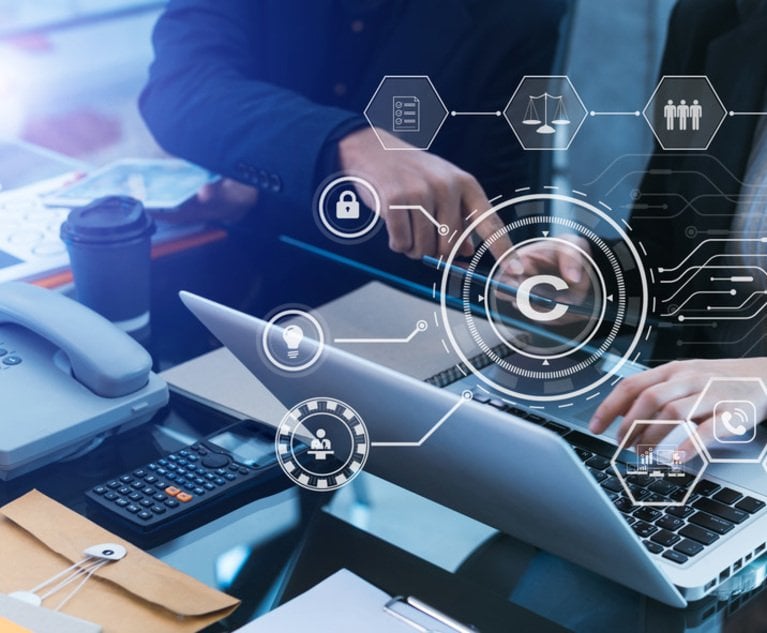Features

AI for Legal Professionals
Mastering AI tools is vital for law firms striving to remain competitive. The increasing demand for prompt and effective services means firms that do not adapt may fall behind.
Features

Is Google Search Dead? How AI Is Reshaping SEO and Search
AI-driven assistants like ChatGPT and Gemini have completely shifted how people find information. Instead of relying on traditional search results, users are turning to conversational models that deliver direct answers, and mostly good ones, in seconds. This is a massive wake-up call for firms that rely solely on SEO strategies.
Columns & Departments

Real Property Law
Co-Tenant’s Adverse Possession Claim Raises Issues of Fact About HostilityBona Fide Purchaser of Property Sold At Foreclosure Is Protected Against Claims That the Foreclosure Sale Was ErroneousTown Not Strictly Liable for Emitting Pollutants Into Lake
Features

Treasury Dept. Issues Final Regulations on Related-Party Partnership Basis Shifting
On Jan. 14, 2025, the Treasury Department issued final regulations designating certain related-party partnership basis shifting transactions as “transactions of interest.” Although this designation does not affect the substantive tax characterization of these transactions, it imposes significant reporting requirements on taxpayers and their advisors.
Features

REITS Remain Optimistic In Face of DOGE Cuts
Publicly traded REITs remain optimistic in the face of potential widespread cuts to federal leasing at the hands of the Department of Government Efficiency because they serve agencies performing the work the Trump administration is prioritizing, including mission-critical agencies.
Features

Enforceability of Governance Provisions Restricting Access to Seek Bankruptcy Relief
For more than six years there has been an ongoing debate regarding the enforceability of governance restrictions, whether blocking rights, golden shares and other provisions designed to manage access to bankruptcy relief. This year, another governance restriction was upheld in dismissing a bankruptcy filing by a debtor that failed to obtain the consent of the lender-approved independent manager as required by its LLC agreement.
Features

Trademark Ruling on Netflix Running Point Series Holds Off ‘Death Knell’ of Rogers Tradition
A federal judge in California declined to stop the debut of the new Netflix series Running Point that Pepperdine University in Malibu, CA, claims infringes on its trademarks by using the mascot name, the “Waves,” and colors of the private Christian college.
Features

Internet Archive’s Decision Not to Appeal Second Circuit’s Fair Use Ruling Could Lead to More Litigation As Issue Remains Unsettled
The Second Circuit’s decision may have significant downstream implications for other digital lending services, making it more difficult to operate absent licensing agreements with copyright holders of the various works they seek to distribute. With Internet Archive deciding against petitioning the Supreme Court, we may well see similar litigation pop up in other jurisdictions outside the Second Circuit until the issue is more widely settled.
Features

Artists Release Silent Album to Protest Change In UK Copyright Law
More than 1,000 artists are credited on a “silent” record released on February 25 in protest over changes that the UK government is considering to its copyright law, changes which critics say will make it easier for AI models to use copyrighted material without securing a license.
Features

The Future of the SEC Whistleblower Program Under Trump 2.0
The Trump administration will likely impact the SEC whistleblower program in terms of a change in its enforcement priorities, as well as the amounts of financial bounties paid, but will not, in our opinion, threaten its existence given bi-partisan support or alter its core functions.
Need Help?
- Prefer an IP authenticated environment? Request a transition or call 800-756-8993.
- Need other assistance? email Customer Service or call 1-877-256-2472.
MOST POPULAR STORIES
- Use of Deferred Prosecution Agreements In White Collar InvestigationsThis article discusses the practical and policy reasons for the use of DPAs and NPAs in white-collar criminal investigations, and considers the NDAA's new reporting provision and its relationship with other efforts to enhance transparency in DOJ decision-making.Read More ›
- The DOJ's Corporate Enforcement Policy: One Year LaterThe DOJ's Criminal Division issued three declinations since the issuance of the revised CEP a year ago. Review of these cases gives insight into DOJ's implementation of the new policy in practice.Read More ›
- A Lawyer's System for Active ReadingActive reading comprises many daily tasks lawyers engage in, including highlighting, annotating, note taking, comparing and searching texts. It demands more than flipping or turning pages.Read More ›
- Practice Tip: The Earning Capacity of Business OwnersThe owner of a business can claim as lost earning capacity in a personal-injury action only the working time lost due to injuries and harm to future earning capacity, not the business' alleged profits in perpetuity.Read More ›
- The DOJ's New Parameters for Evaluating Corporate Compliance ProgramsThe parameters set forth in the DOJ's memorandum have implications not only for the government's evaluation of compliance programs in the context of criminal charging decisions, but also for how defense counsel structure their conference-room advocacy seeking declinations or lesser sanctions in both criminal and civil investigations.Read More ›
